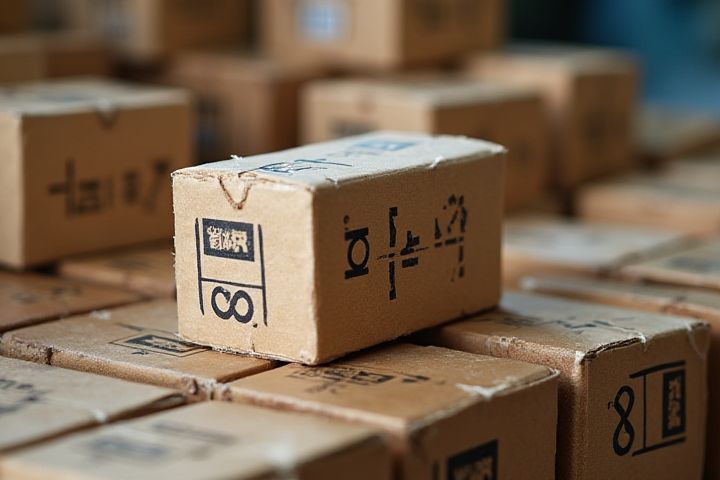
Importing goods in Nigeria involves navigating regulatory requirements and customs procedures to ensure compliance with local laws. The Nigerian Customs Service (NCS) is responsible for collecting duties and enforcing regulations related to imported goods, which can include tariffs based on the Harmonized Commodity Description and Coding System. Key items commonly imported include machinery, electronics, automobiles, and food products, each requiring specific documentation such as import permits, invoices, and bill of lading. Understanding the Value Added Tax (VAT) implications and excise duties is crucial for accurate cost estimation and financial planning. By leveraging free trade zones, businesses can benefit from reduced tariffs and improved logistics for their imported goods in Nigeria.
Import regulations
Importing goods in Nigeria requires strict adherence to specific import regulations set by the Nigeria Customs Service (NCS). Importers must obtain necessary licenses and permits, such as the Pre-Arrival Assessment Report (PAAR), to facilitate smooth customs clearance. It's essential to comply with the Nigerian Trade and Customs laws to avoid penalties, which include customs duties, taxes, and fines for non-compliance. Understanding tariffs, restricted items, and documentation requirements is crucial for successful importation and can significantly impact your overall business operations.
Custom duties
Importing goods in Nigeria requires careful navigation of custom duties, which are taxes imposed by the government on imported products. These duties vary depending on the category of the goods, with specific rates established by the Nigeria Customs Service to regulate trade and protect local industries. Understanding the Harmonized System (HS) codes is essential, as they categorize products for accurate duty assessment. To ensure compliance and avoid penalties, you should familiarize yourself with the latest customs regulations and procedures.
Import licenses
Importing goods in Nigeria requires obtaining the necessary import licenses, which are crucial for compliance with local regulations. The process typically involves applying through the Nigerian Customs Service (NCS), where you must provide documentation, including a valid Business Name Registration and taxpayer identification number. Understanding the Harmonized System (HS) codes is essential, as these codes classify your goods and determine applicable tariffs. Ensuring you have the correct import license not only facilitates smoother customs clearance but also helps avoid penalties and delays in your importation process.
Prohibited items
Importing goods into Nigeria involves strict regulations regarding prohibited items, which include firearms, narcotics, and counterfeit products. The Nigerian Customs Service enforces these regulations to protect public health, safety, and the economy. Additionally, items such as used clothing, certain agricultural products, and pornography are also restricted to prevent environmental and health hazards. Ensuring compliance with these import restrictions is crucial for businesses looking to avoid hefty fines and legal complications.
Currency restrictions
Importing goods into Nigeria involves navigating various currency restrictions set by the Central Bank of Nigeria (CBN), which are designed to stabilize the economy and manage foreign exchange reserves. Importers must use authorized channels to access foreign currency, primarily through a system called the Import and Export (I&E) window, where transactions are conducted at market-driven exchange rates. Furthermore, specific goods may require import licenses or adhere to particular quotas, impacting the overall cost and logistics of the import process. Understanding these regulations can enhance your ability to efficiently manage import expenses and compliance, ensuring a smoother transaction experience.
Tariff classifications
Import goods in Nigeria are subject to specific tariff classifications outlined in the Nigeria Customs Service (NCS) guidelines. These classifications categorize products based on their nature, usage, and material composition, influencing the applicable duties and taxes. Understanding tariff codes, such as HS codes, is essential for importers to ensure compliance and avoid penalties during the clearance process. Accurate classification helps facilitate trade by streamlining the importation process, ensuring that you comply with Nigerian customs regulations efficiently.
Import documentation
Import documentation in Nigeria is crucial for ensuring compliance with trade regulations and facilitating smooth customs clearance. Key documents include the Bill of Lading, Commercial Invoice, and Packing List, which outline the specifics of the imported goods. Importers must also obtain a Valid Registration Certificate from the Nigeria Customs Service, along with an Import Permit from the relevant regulatory bodies, depending on the type of goods. Having these documents in order not only expedites the import process but also minimizes the risk of delays and penalties related to non-compliance.
Exchange rates
Nigeria's import goods sector is significantly influenced by fluctuating exchange rates, which directly affect pricing and availability. When the Naira depreciates against major currencies, the cost of imported products--ranging from electronics to textiles--increases, impacting both consumers and businesses. Importers must adapt their pricing strategies to mitigate losses and remain competitive in the market. Understanding the dynamics of foreign exchange can help you make informed decisions when sourcing goods from abroad, ensuring profitability in a volatile environment.
Import quotas
Import quotas in Nigeria serve as regulatory measures to control the volume of specific goods entering the country, aiming to protect local industries and balance trade deficits. These quotas can restrict foreign competition and promote domestic production, benefiting local manufacturers and enhancing economic stability. Businesses must navigate the complex framework of import regulations, ensuring compliance with the established quotas to avoid penalties and optimize their supply chain. Understanding these quotas is essential for effectively managing imports and maximizing opportunities in the Nigerian market.
Compliance requirements
Importing goods into Nigeria necessitates adherence to stringent compliance requirements set by the Nigerian Customs Service (NCS) and other regulatory agencies. You must obtain an Import Duty Exemption Certificate (IDEC) and ensure that all goods conform to the standards established by the Standards Organization of Nigeria (SON). Documentation such as a Bill of Lading, proforma invoices, and Certificate of Origin must be accurately prepared to facilitate smooth customs clearance. Understanding these compliance protocols is crucial to avoid costly penalties and delays during the importation process.
